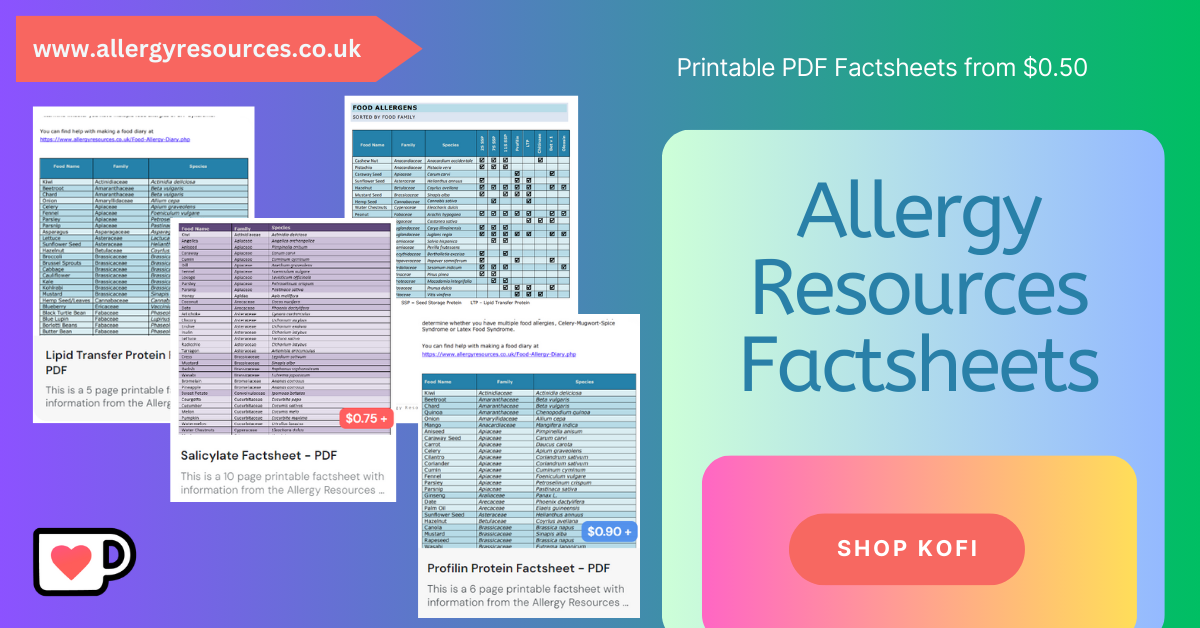
THYME ALLERGY
Key Allergens
Thyme is rarely linked to food allergy, to date there are no recorded allergens for thyme by the World Health Organization (WHO), because there have not been enough study into allergic effects from this food. If you are interested in what is needed by the WHO before they add an allergen to their allergen database you can check that out HERE.
Thyme contains essential oils including eugenol and thymol, which is a common ingredient in antiseptics, mouthwashes and disinfectants. Eugenol is a chemical compound which can also cause contact allergies - this is what gives the food flavour and fragrance. These contact reactions are sometimes mistaken for a true IgE food allergy.
Food Intolerances


Thyme is a low FODMAP food when eaten in normal quantities. FODMAP stands for Fermentable oligosaccharides, disaccharides, monosaccharides and polyols. Foods high in FODMAPs can cause symptoms of food intolerance, affecting the gastro intestinal system and this can be mistaken for a true IgE food allergy.
Thyme is a food high in salicylates. Salicylates have the potential to cause gastrointestinal food intolerance symptoms in people who are sensitive to salicylates.
You can read more about Food Intolerances on the dedicated Food Intolerance Page.
Associated Syndromes
Cross Reactivity
Other plants which contain eugenol include allspice, bay leaf, basil, cinnamon, turmeric, marjoram, mace, nutmeg, pepper, ginger, oregano and clove.
Note these food lists are not exhaustive, the most up to date information is on the Cross Reactivity Tool.
Resources
Websites
ATP Science - Salicylate Foods
Articles and Journals
Biological Properties and Prospects for the Application of Eugenol — A Review, 2021
A Rare Case of Multiple Severe Anaphylaxis Caused by Thyme, Black Pepper, Wasp and Honey, 2019
Angioedema Due to Lamiaceae Allergy, 2018
Thymol, thyme, and other plant sources: Health and potential uses, 2018
Severe Pepper Allergy in a Young Child, 2011
Occupational airborne contact dermatitis caused by thyme dust, 2002
Labiatae Allergy: Systemic Reactions Due to Ingestion of Oregano and Thyme, 1996
Occupational asthma caused by aromatic herbs, 1996